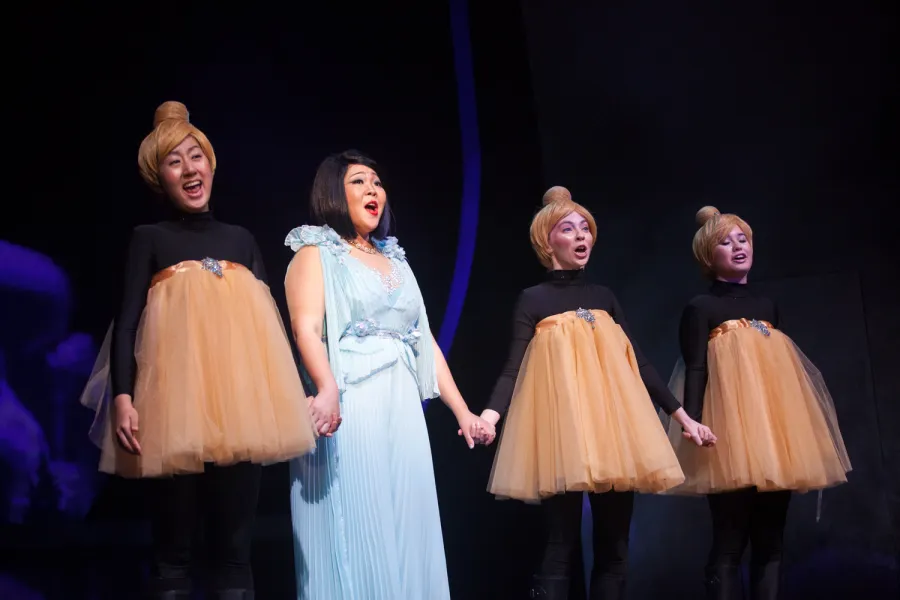April 21, 2017

Stella Bokyung Yoon is a soprano singer and current student of the Butler Opera Center, which will be presenting Mozart’s The Magic Flute from April 22 - 29. Ms. Yoon performs the role of Pamina in this fantastical two-act opera.
What is your earliest memory of music?
My lifelong love affair with singing started when I was a young girl. I was a fanatic for music and the arts. My parents loved traveling and took me to the great musicians’ concerts and operas all over the world. My very first opera was Madame Butterfly. I was completely amazed that singers touch people’s heart with their voices. I decided then that I wanted to sing opera, the beautiful music that captured my heart and made me into a passionate soul.
What about opera music—in particular—is intellectually and artistically fulfilling for you?
The drama deeply touches the hearts of the audience and makes them interact, even breathe, with the performer. There is no moment like right before the curtain goes up. I remember looking up to the balconies before each performance, realizing that I am doing what I had dreamed of long ago. Every time I get on stage to sing is a heartfelt moment. I am so grateful for the gift of opera, and the wonderful opportunity to share that gift.

In the Butler Opera Center’s upcoming presentation of Mozart’s The Magic Flute, you play Pamina—a character with arguably the most emotional and romantic pieces in the opera. What is your process for inhabiting a character and imbuing your performance with their motivations?
Portraying Pamina is very exciting; to become her, I learned and translated everything, word-by-word. I put individual, distinct emotions to each word so that I could understand Pamina deeply and develop her palette of feelings as the scenes go by.
Also, I believe the chemistry that I build with other characters as Pamina is extremely important, so I have tried to portray her organically and concentrate on her true feelings; it is an interpretation with both the voice and the physique. Pamina’s personality affects my vocal productions, which is a fun and interesting challenge.
Linguistic intelligence is a (sometimes overlooked) aspect of mastering operatic singing. How many languages are you able to sing?
Mainly, I sing in five different languages: Italian, German, French, English, and Korean. Occasionally, I am required to sing in some other languages like Spanish, Russian or Czech.
What general advice would offer to someone that is just beginning their academic or professional career in opera?
Learning music requires lots of time and commitment, especially opera. If you know more now, everything will come easier later. So, learn and study. Spend time on what you love. Invest in your future and your dream. Also, remember to take everything day by day. You need to have patience: “Slow and stead wins the race.” Then later, when you do get there, you'll be calm and prepared to conquer whatever challenges are presented to you.

